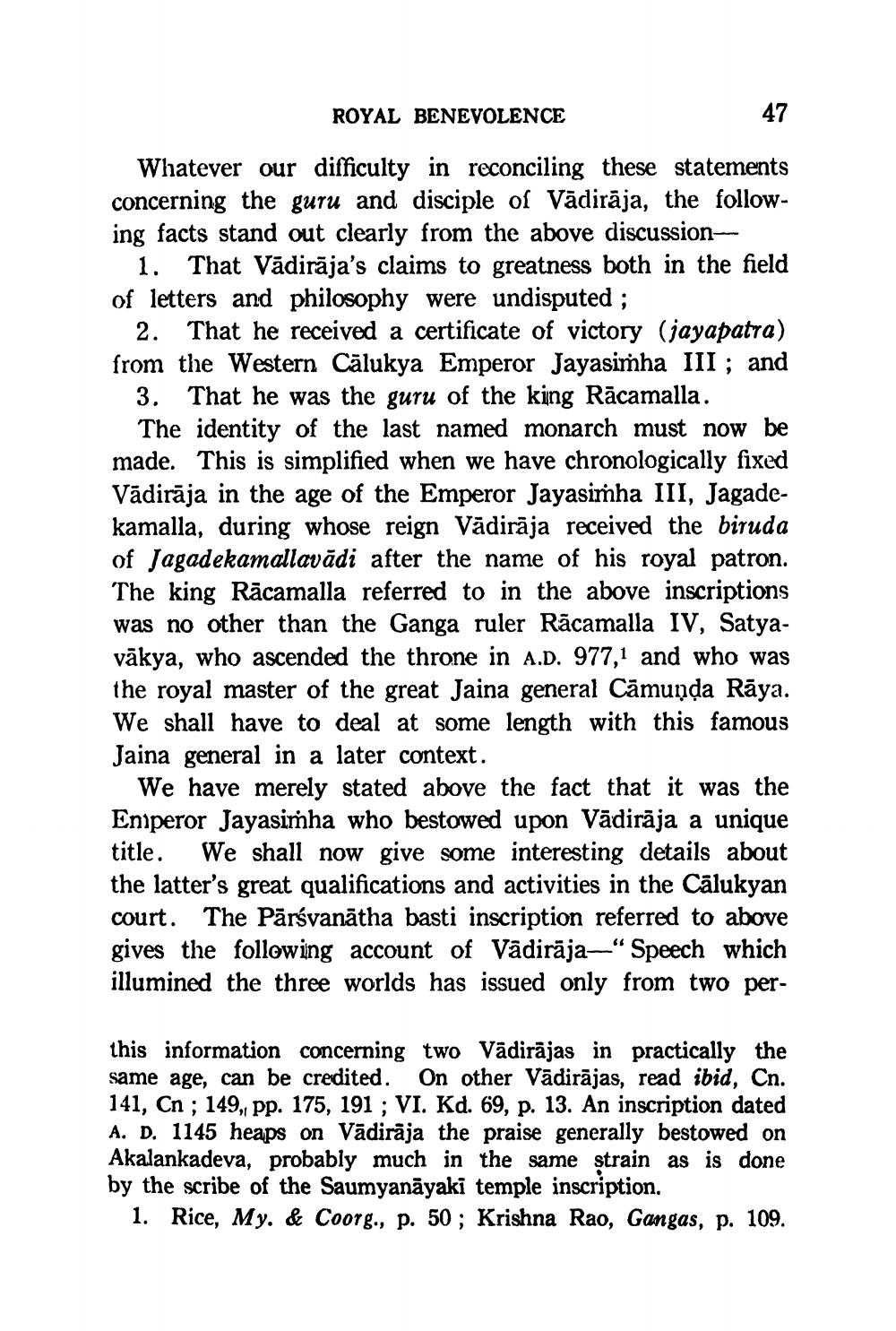________________
ROYAL BENEVOLENCE
47
Whatever our difficulty in reconciling these statements concerning the guru and disciple of Vadiraja, the following facts stand out clearly from the above discussion
1. That Vādiraja's claims to greatness both in the field of letters and philosophy were undisputed;
2. That he received a certificate of victory (jayapatra) from the Western Calukya Emperor Jayasimha III; and 3. That he was the guru of the king Racamalla.
The identity of the last named monarch must now be made. This is simplified when we have chronologically fixed Vādirāja in the age of the Emperor Jayasimha III, Jagadekamalla, during whose reign Vädirāja received the biruda of Jagadekamallavadi after the name of his royal patron. The king Racamalla referred to in the above inscriptions was no other than the Ganga ruler Racamalla IV, Satyavākya, who ascended the throne in A.D. 977,1 and who was the royal master of the great Jaina general Camuṇḍa Rāya. We shall have to deal at some length with this famous Jaina general in a later context.
We have merely stated above the fact that it was the Emperor Jayasimha who bestowed upon Vädirāja a unique title. We shall now give some interesting details about the latter's great qualifications and activities in the Calukyan court. The Parsvanatha basti inscription referred to above gives the following account of Vadirāja-" Speech which illumined the three worlds has issued only from two per
this information concerning two Vädirājas in practically the same age, can be credited. On other Vädirājas, read ibid, Cn. 141, Cn; 149, pp. 175, 191; VI. Kd. 69, p. 13. An inscription dated A. D. 1145 heaps on Vādirāja the praise generally bestowed on Akalankadeva, probably much in the same strain as is done by the scribe of the Saumyanāyaki temple inscription.
1. Rice, My. & Coorg., p. 50; Krishna Rao, Gangas, p. 109.




